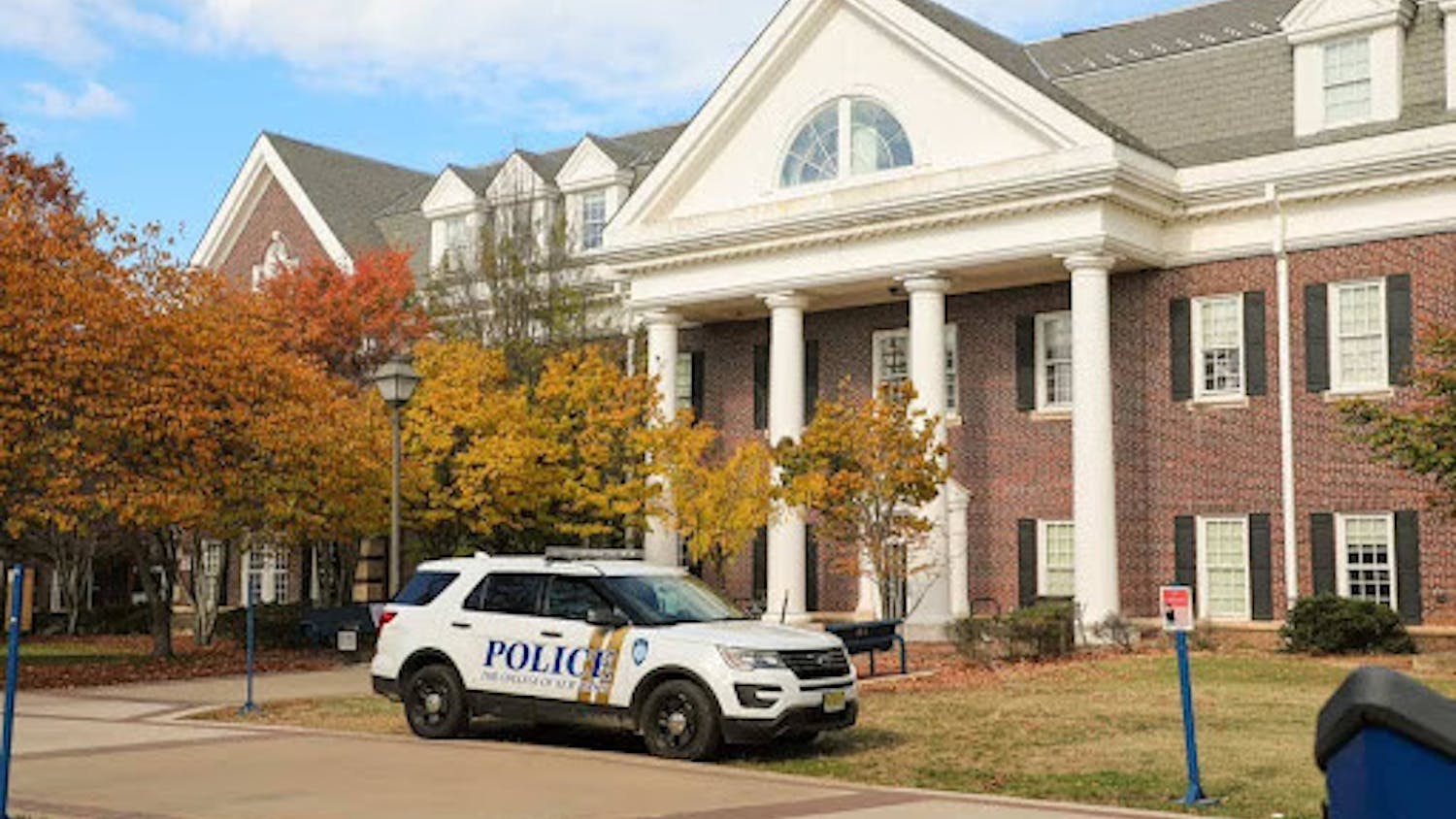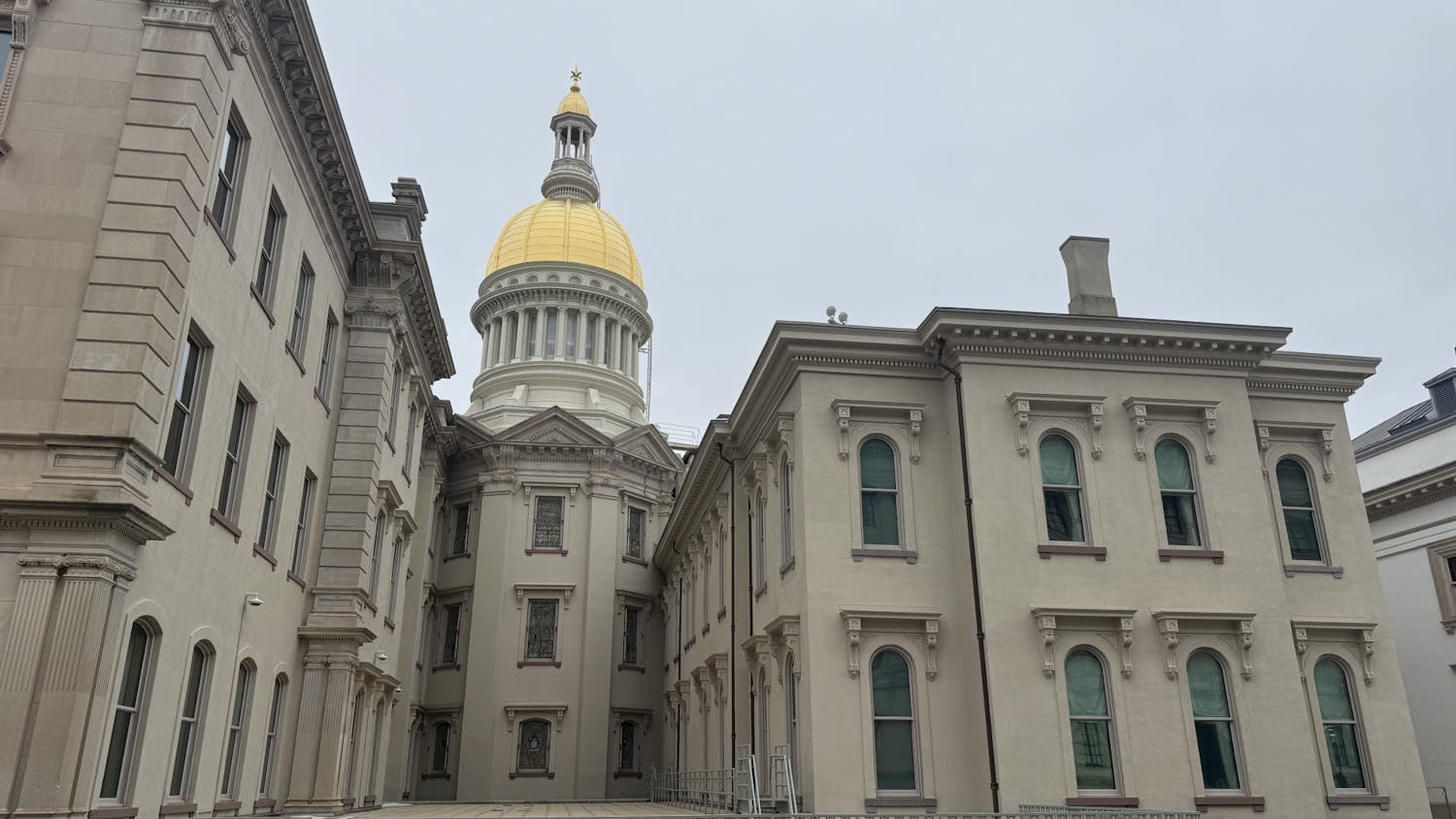Angela Chou, freshman biology and elementary education major, recycles even though she heard that the College does not. Since her Columbian roommate is not familiar with recycling, at the trash shoot Chou carefully sorts plastics out of her garbage bag.
"It's just something I was raised with in my family," she said. "It's just instilled in my brain."
As she took a break from pouring over her ecology textbook, she explained that her high school set out recycling bins but dumped everything together in the trash at the end of the day.
"I think it's just to raise awareness about recycling," she said. Chou is one of many students who believe the College does not recycle anything.
Despite rumors, recycling programs at the College began around 1985 when folders for paper recycling were issued to all staff in office settings, according to J. Butter Allen, director of Building Services.
Today waste is managed with Midco Waste through the Department of Grounds and Landscapes. The College recycles glass, paper, cardboard, plastic, aluminum, tree parts, metal, tires, concrete, bricks, cinderblocks, antifreeze and used computers.
"Mostly anything that's a container is recyclable," Don Blauth, project specialist, said. Blauth is in charge of the grounds workers who collect recycling at the College.
Recyclables are trashed, however, when garbage severely contaminates the recycling container. As some students watch attendants throw bags of contaminated recycling down the garbage chute, they assume all their meticulously sorted items are headed for the dump.
"Contamination has to be sorted by hand with a great big tarp, and we have no place to do that," Allen, who manages recycling within residence halls, said. "If it's one or two things, our men pick it out. If it's a lot, it becomes trash."
Also, if the Midco truck is behind schedule, it sometimes takes trash and cardboard boxes in the same load. Recyclables are then sorted out at the company's transfer station.
"That's their profit," Blauth said. "They lose money if they are dumping it as bulk trash."
For Midco, recycling means revenue. In a state that values recycling and has a mandatory recycling program, the hauling fee for recyclables is lower than the fee for dumping garbage by the ton. Accordingly, the College pays less to recycle than it pays to dump trash.
"This way we just get charged the haul fee," Blauth said. "By recycling we save money."
Grounds workers, sometimes at 6 a.m. or whenever campus departments call for recycling pick-ups, push large blue recycling containers from academic buildings and food service areas to be taken to two 30-yard roll-off dumpsters at the Green Lane compound. Once the dumpsters are full, Midco hauls them away. The Green Lane compound includes six dumpsters for paper.
"When I see the amount of cardboard and paper that goes out of here, I think a lot of recycling goes on here," Blauth said.
He said the large amount of cardboard comes from furniture boxes, office supply boxes and Sodexho, which diligently recycles its food boxes.
In the residence halls, building attendants gather recyclables. They bundle paper and leave it outside for grounds workers to pick up.
However, despite efforts of Students Acting for the Environment (SAFE) in Fall 2003, little paper recycling occurs in the dormitories.
Fire codes limit the number of allowed paper recycling bins, and contamination is rampant.
"It has been our experience to not have a lot of success with paper recycling in the residence halls," Allen said. "On the academic side of campus it's no problem. Years ago we made the decision to go after certain areas."
Outside Travers and Wolfe Halls, two dumpsters are labeled "commingled bottles/cans" and two are labeled "paper/cardboard." However, only cardboard boxes fill the paper container.
"Bottles and cans can be washed out, and they're going to have residue," Allen said about why paper is more easily contaminated than plastic. "The only time I wash my cans out is the summertime because the bees don't play fair. It's a harsher sterilization process for plastic."
Paper containers outside are so easily contaminated that they are all off-campus, Allen said.
Many years ago Midco picked up a contaminated paper container outside Townhouses East five times as trash, so finally the College moved it.
"People use everything for trash," Allen said.
Every residential room, however, has a blue can for recycling bottles and cans. Judging from the amount of No. 1 China menus in the few residence hall paper recycling bins, College students seem interested in preserving their environment.
"I think most of the students recycle," Blauth said. "I don't think it'll ever be 100 percent-you'll always get someone who won't recycle."
"It's good for the environment, and doesn't take that much effort," Jesse Chroman, freshman accounting major, said. "We live in it-we have to peacefully coexist for the next however many years. I don't want to give my children a ball of crap."






